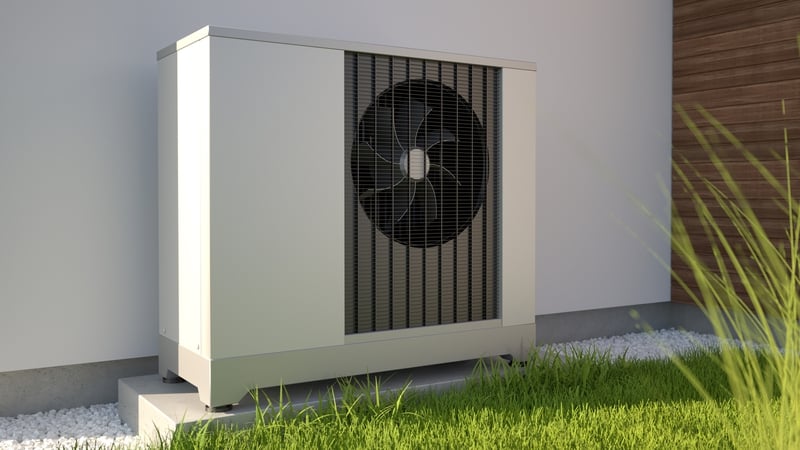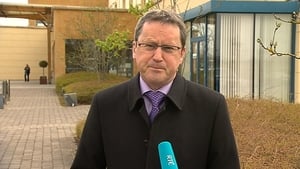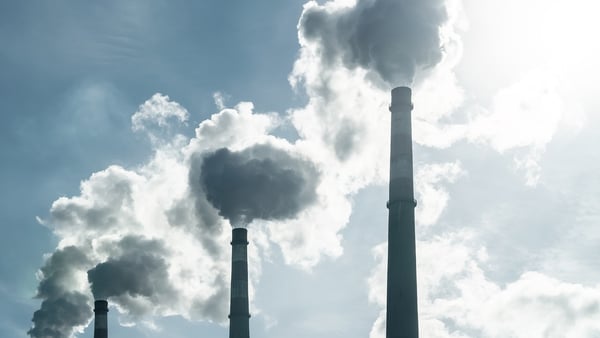The Climate Change Advisory Council has said the Government must do more to help everyone make sustainable choices in insulating and heating their homes.
It has called for the rate of energy upgrades to social homes to be doubled and for special measures to be introduced to support older people achieve warmer more comfortable homes.
The call is made in a report about residential, commercial and public buildings in Ireland, in what is the first deep analysis of climate action in Ireland's built environment from the CCAC.
The council has appealed to the Government to make it easier and cheaper for people to proactively install heat pumps in homes and workplaces.
It noted that only about 70 grant-aided heat pumps per week were installed last year even though 78% of residential buildings are technically suitable for them without any further energy efficiency improvements.
The CCAC urged the Government to provide increased grants and better information about how suitable heat pumps are and how they operate.
We need your consent to load this comcast-player contentWe use comcast-player to manage extra content that can set cookies on your device and collect data about your activity. Please review their details and accept them to load the content.Manage Preferences
It has also called for the ambition and rate of upgrades to social homes to be doubled and more support for older people and householders, who are least likely to be able to afford retrofits, so they can lower their heating costs.
The council said the recently launched Home Energy Upgrade Loan Scheme is welcome, but further financial mechanisms are needed to support those just above the threshold for energy poverty who cannot afford a deep retrofit.
It also wants increased incentives for the renovation of existing vacant and derelict buildings and the use of low-carbon materials such as timber to be promoted.
Challenge of replacing fossil fuel heating systems
The report said emissions from buildings fell 6% last year and the residential sector is currently on track to meet its sectoral emissions ceiling if the installation of heat pumps and district heating can be rapidly scaled up.
But it said that to stay on track, the sector must rapidly scale up efforts to replace fossil fuel heating systems with low-carbon alternatives such as heat pumps and district heating.
However, that is expected to be a huge challenge.
Figures showed a total of 48,000 grant-aided energy-related upgrades were completed last year, a 78% increase from the previous year.
Another 2,500 free retrofits were carried out by local authorities.
However, just 7.5% of all those 50,000 cases involved a heat pump being installed.
We need your consent to load this rte-player contentWe use rte-player to manage extra content that can set cookies on your device and collect data about your activity. Please review their details and accept them to load the content.Manage Preferences
District heating progress
District heating, the other major climate action solution for the build environment, is progressing even slower.
The report said only two district heating systems, supplying less than 3% of the national 2030 district heat target, look likely to be in operation by 2030.
One of them is the Tallaght District Heating Network, which is currently operating and looking to expand.
The other is the Dublin District Heating System which will eventually pump heated water, a by-product of the waste incinerator at Poolbeg in Dublin, to homes and businesses in areas nearby.
Chair of the Climate Change Advisory Council Marie Donnelly said the reliance on expensive, imported fossil fuels needs to end so that people can afford to heat their homes sustainably.
She called on the Government to urgently publish the National Heat Policy Statement and enact the Heat Bill to support accelerated delivery of district heating schemes and ensure a comprehensive approach to decarbonising the heat sector.
Additional recommendations include addressing embodied carbon emissions, promoting urban regeneration and infill development.
The council has also recommended that the Government increases the resilience of the built environment to the future impacts of climate change such as flooding, extreme rainfall, droughts and intense storms by developing sectoral adaptation plans.
We need your consent to load this rte-player contentWe use rte-player to manage extra content that can set cookies on your device and collect data about your activity. Please review their details and accept them to load the content.Manage Preferences






